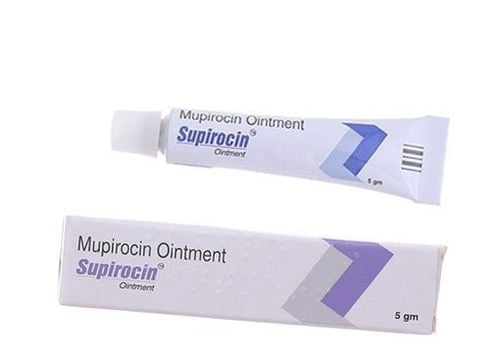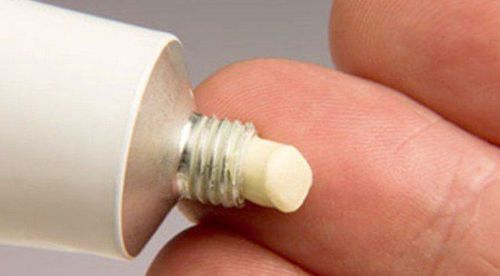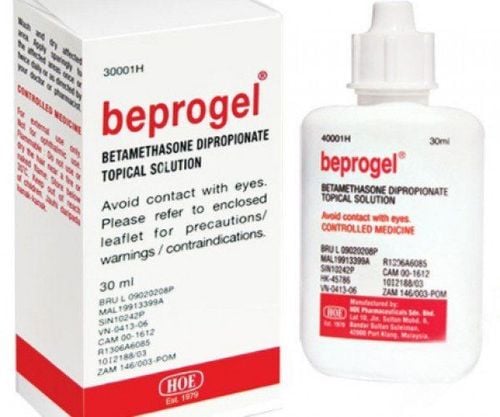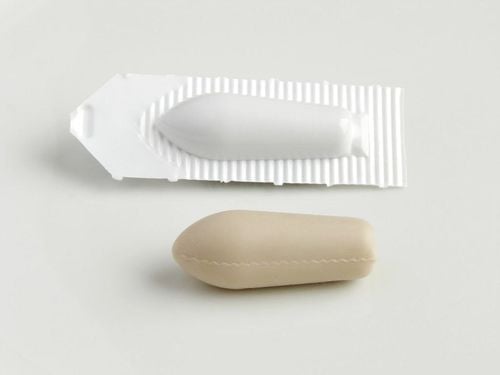Triamcinolone Acetonide is corticosteroid cream of mild to strong pharmaceutical activity, often used locally for various skin conditions. To ensure the treatment efficiency and avoid the side effects, patients need to seriously adhere to the doctor and pharmacist’s guidance.
1. What is Triamcinolone Acetonide Cream?
Triamcinolone Acetonide is a corticosteroid cream of mild to strong pharmaceutical activity, often used locally to treat various skin conditions (eczema, dermatitis, allergy, rash). Triamcinolone can reduce itchiness, swelling, and redness common in these conditions. The active ingredient of Triamcinolone Acentonide cream is Triamcinolone, which is a hormone medication.
2. Triamcinolone Acetonide can be indicated in which cases?
Triamcinolone Acetonide cream can be used to treat conditions such as:
- Cutaneous T-cell lymphoma (CTCL): This is a rare disease, including Mycosis fungoides (MF) and Sezary syndrome (SS), commonly affecting the skin and lymph nodes. Their symptoms are unclear in the initial stage, which can only appear as chronic skin redness. The disease can be diagnosed based on clinical symptoms and skin biopsy. During the initial stage, the histopathology in the biopsy result can be unclear.
- Seborrheic Dermatitis (SD): This is a common skin infection in areas with abundant oil glands such as scalp, face, upper body,... This disease often progresses slowly and appears as dry or oily flakes on the skin, or yellow-red nodules in more serious cases. SD can be diagnosed through clinical check-up, though it can be easily mistaken for other conditions such as psoriasis, contact dermatitis, atopic dermatitis,...
- Eczema: an allergic condition that causes redness and itchiness.
- Contact dermatitis: a kind of rash caused by direct contact to allergen.
- Atopic dermatitis
- Discoid eczema
- Granuloma annulare: this is a chronic and benign skin condition. It is characterized by nodules appearing in arcs or circles surrounding normal or indented skin. GA can be diagnosed through clinical check-ups and biopsy.
- Plaque psoriasis: A type of psoriasis, characterized by patches of red, dry, and scaly skin, which can be itchy and painful. Pressured-prone areas are most commonly affected, including elbows, knees, back,...
- Scalp psoriasis: this is a common skin condition, in which red and white skin patches are clearly defined and prone to flaking and bleeding, together with itching and hair loss. Problems in treating scalp psoriasis can cause discomfort and even depression from ridicules and insensitive comments.
- Anal itching: a phenomenon of significant and prolonged itching around the anal area. Anal itching can be the result of various causes, such as skin conditions, hemorrhoids, poor hygiene, excessive scrubbing,...
- Pyoderma gangernosum (PG) is a condition of large, painful skin ulcers. Together with being rare, this condition is also hard to diagnose. Doctors might conclude in PG after ruling out other possible conditions based on its fast progression and poorly defined ulcers.
- Genital itching
- Flat lichen: red plaques on skin become thick and change colour upon excessive friction and scratching.
3. How to use Triamcinolone Acetonide cream?
Only use Triamcinolone Acetonide on skin, avoiding face, groin, and armpit areas unless indicated. Instruction for use is as below:
- Wash and dry your hands and the affected skin areas before using. Apply a thin layer of cream on the affected areas and gently massage for 2 - 4 times a day depending on the doctor’s guidance. Do not bandage or cover the treated areas unless instructed by your doctor.
- Do not apply the cream to the eyes as it can cause or worsen ocular hypertension. Prevent the cream from getting into contact with your nose or mouth. If accidental contact occurs, wash your eyes, nose, and mouth thoroughly with plenty of water.
- Triamcinolone Acetonide cream is a prescribed medicine and should only be used when indicated by your doctor. Do not use the medication for more than the indicated period. Please inform your doctors if your conditions worsen or prolong.
4. Side effects of Triamcinolone Acetonide cream
While using Triamcinolone Acetonide cream, you may encounter several side effects:
- Skin burning, itching, irritation or dryness can happen during initial use, but can disappear after several days if your body responds well to the medication. If any of these side effects prolong or worsen, report to your doctor or pharmacist immediately for instruction.
- Stretched, thinning, or discolored skin, acne, increased hair growth, folliculitis.
- Worsen existing dermatitis
- Full-body side effect: Local corticosteroid used can be absorbed into blood streams and travel throughout the body, causing full-body side effect. Though rare, this can still occur in children or patients with prolonged or extensive use of this cream. Report to your doctor immediately if encounter any of these side effects: exhaustion, weight loss, headache, swollen ankles or feet, extreme thirst/increased urination, and eyes problems.
- Rash, itching/ swelling (especially in the face, tongue, and throat), serious dizziness, shortness of breath: though rare, these are signs of severe allergic reaction. Therefore, seek medical support immediately if encounter any of these allergic symptoms
This is not the full list of possible side effects. If encounter any other unexpected side effects, report to your doctor or pharmacist immediately.
5. Drug interaction with Triamcinolone Acetonide cream
Drug interaction can alter the medication activity or increase the risk of severe side effects. This article cannot cover every possible drug interaction with Triamcinolone Acetonide cream. Therefore, patients should record every medication product consumed to properly inform their doctors, which includes herbal products, prescribed and unprescribed medication. Do not start, stop or alter the dosage when using this medication without the doctor’s instruction.
Several drugs that can interact with this medication are: orally-administered corticosteroids (such as prednisone), and immunosuppressive drugs (such as cyclosporine).
6. What should I do in case of Tramicinolone Acetonide underdose and overdose?
Triamcinolone Acetonide can be harmful if swallowed. In case of overdosing with severe symptoms such as fainting or shortness of breath, please contact or bring the patient to the nearest medical facility.
If you miss one dose of Triamcinolone Acetonide cream, use it as soon as you remember. If it is already close to the next dose, skip the missed dose and continue with your regular schedule. Do not apply a double dose to make up for the missed dose.
7. Precautions when using Triamcinolone Acetonide
- Do not share the Triamcinolone Acetonide cream tube with other people
- Do not use Triamcinolone Acetonide for other skin conditions, unless indicated by the doctor.
- When using Triamcinolone Acetonide cream for a long period or for large skin areas, regular tests might be needed, such as that to examine adrenal gland function for progression and side effects monitoring.
- Inform all of your doctors that you are or were using Triamcinolone Acetonide cream.
Inform your doctor or pharmacist about your medical history, especially any problems associated with the immune system and poor blood circulation. - Do not apply the cream if the affected areas have infections or ulcers.
- Caution when using Triamcinolone Acetonide for children under 12 years old: Triamcinolone Acetonide cream can temporarily slow their growth if used for a long period. Consult your doctor to monitor your child’s height regularly.
- Do not use this medication for patients with adrenal insufficiency or small skin lesions caused by blood vessel dilation.
- Caution when using Triamcinolone Acetonide cream during pregnancy. It is unsure whether this drug can enter breast milk when being used on the skin. Therefore, consult your doctor if you are breastfeeding.
Store Triamcinolone Acetonide cream at room temperature, avoid direct light or humid environments. Keep Triamcinolone Acetonide out of reach for children and pets.
To arrange an appointment, please call HOTLINE or make your reservation directly HERE. You may also download the MyVinmec app to schedule appointments faster and manage your reservations more conveniently.
Reference source: webmd.com
To arrange an appointment, please call HOTLINE or make your reservation directly HERE. You may also download the MyVinmec app to schedule appointments faster and manage your reservations more conveniently.








